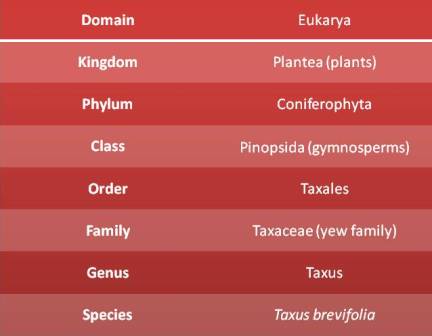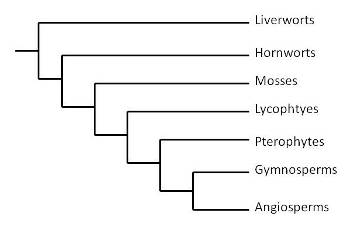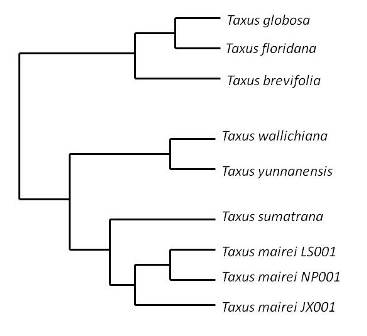Classification
Eukarya- The eukaryotes are
organisms whose cells have true nuclei and
membrane-bound organelle.
Plantae- Members of this kingdom are
all multicellular eukaryotes which undergo
photosynthesis in order to carry out their autotrophic
lifestyles. In order to go through photosynthesis,
plants are equipped with chloroplasts containing
photosynthetic pigments chlorophyll a, and b and
carotenoids. They also have cell walls which are made up
of cellulose and plastids which store the organism’s
food reserves.
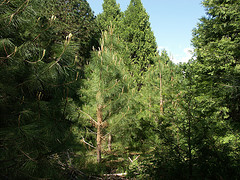 Coniferophyta- This phylum is known
especially for its needle-shaped leaves. They are
heterosporous so the male and female gametophytes grow
from different sporophytes which are generated on
different cones; the pollen is located on the male cones
while the naked seed is found on the larger female
cones. Another characteristic of this phylum is that
vascular tissue is present in all parts of the plant’s sporophyte. Also in the conifers, the sporophyte is the
dominating form.
Coniferophyta- This phylum is known
especially for its needle-shaped leaves. They are
heterosporous so the male and female gametophytes grow
from different sporophytes which are generated on
different cones; the pollen is located on the male cones
while the naked seed is found on the larger female
cones. Another characteristic of this phylum is that
vascular tissue is present in all parts of the plant’s sporophyte. Also in the conifers, the sporophyte is the
dominating form.
Pinopsida- Gymnosperms are cone-bearing
plants that lack flowers and have naked seeds without
fruit.
Taxales- The organisms in this order
are evergreens that are either trees or shrubs that
usually have needle-like leaves.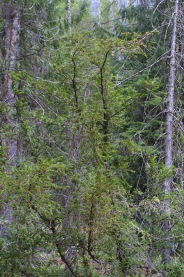
Taxaceae- Members in the Yew family are evergreens. They’re known for their long,
thin leaves that twist in a spiral pattern and thin
brown bark that may have a scaly appearance. Yews are
conifers so they have cones. The female cones are
accompanied by red berry-like structures which are
called arils.
Taxus- These are either trees or shrubs
that can be dioecious or monoecious. They have braches
which are ascending or drooping. Their seeds are brown
and mature in one season.
Taxus brevifolia (noun)- small
or medium irregularly branched tree of the Pacific coast
of North America; yields fine hard close-grained wood
This is a more general phylogenic tree of land plants based on morphological data. The Pacific Yew is included in the gymnosperms.
This is a portion of the Taxus family phylogenic tree. This information is based on molecular data.
Check out the Habitat page to see where the Taxus brevifolia is found!
